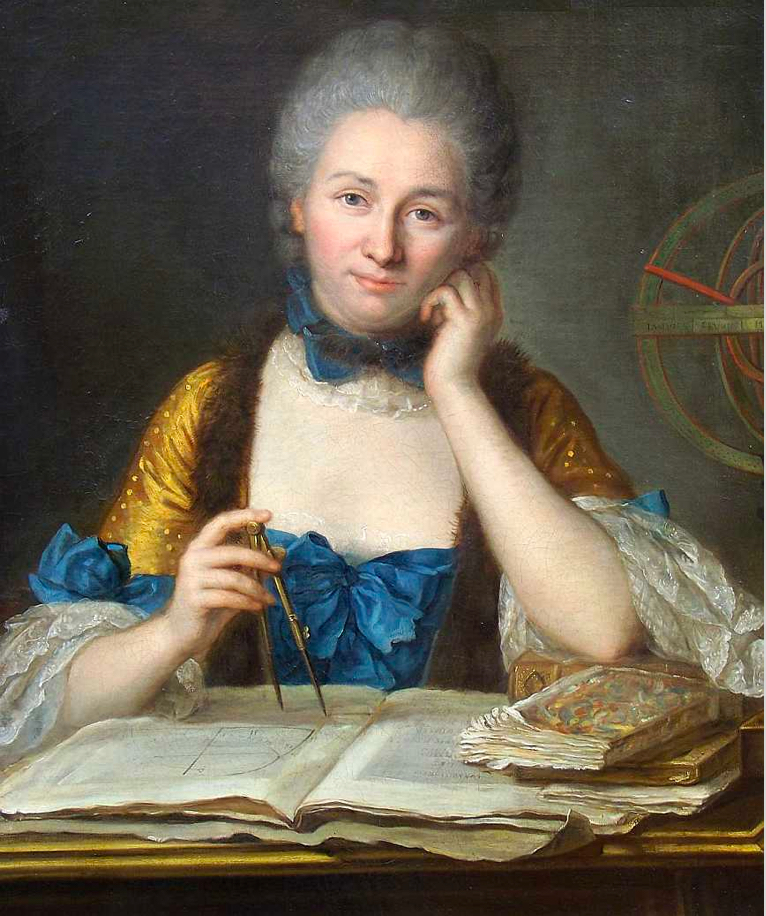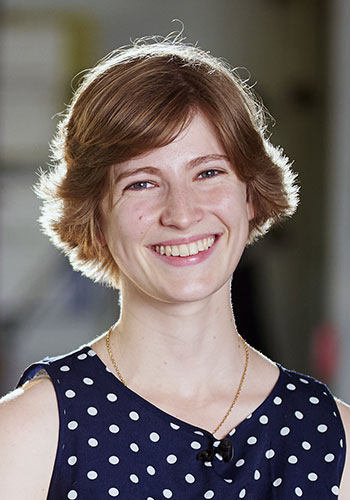Pourquoi la tech ?
J’ai toujours aimé poser des questions pour comprendre comment tout fonctionnait autour de moi, que ce soit le tramway, les volcans ou le doliprane. Les sciences sous toutes leurs formes m’ont donc intéressée depuis longtemps, pour répondre à tous les « pourquoi ? » qu’on peut avoir, qu’on soit enfant ou adulte !
Votre parcours ?
J’ai fait mon collège, mon lycée et ma classe prépa (Physique Technologie) dans ma région d’origine, la Picardie ! Après les concours j’ai été admise à l’Ecole polytechnique, où j’ai pu continuer les sciences que j’avais pratiqué en prépa (physique, sciences de l’ingénieur, maths) et redécouvrir la biologie. Grâces aux stages pendant mes études, j’ai pu côtoyer les différents acteurs du milieu de la santé : les praticiens hospitaliers, les associations, les chercheurs, les industriels… pour finalement travailler à un poste en quelque sorte au milieu de ces professions, et essayer de développer des nouveaux médicaments avec toutes ces expertises.
Votre première expérience professionnelle dans la tech ?
Mon premier stage en entreprise s’est fait dans une start-up qui développe un nouveau séquenceur (appareil qui sert à lire les séquences d’ADN ou d’ARN), pour élucider tous les mystères qu’il reste à comprendre autour du génome. C’était assez incroyable de travailler sur le prototype, qui permettait de rendre ces minuscules brins invisibles tout à fait compréhensibles sur l’écran d’un ordinateur.
Que faites-vous aujourd’hui et pourquoi ?
Aujourd’hui je suis chef de projet chez Meletios Therapeutics, et avec mes collègues nous cherchons de nouveaux médicaments pour éviter tous les problèmes que les virus nous causent. J’essaie de mettre au point la meilleure stratégie et les expériences les plus adaptées pour démontrer l’efficacité de nos médicaments. Humainement, c’est très motivant d’essayer de combattre ces maladies, et techniquement c’est très intéressant d’essayer de comprendre au mieux le mécanisme des maladies et de nos médicaments.
Vos atouts pour ce poste ?
Mon intérêt pour la recherche, qui me permet d’explorer sans relâche toutes les questions qu’on peut rencontrer sur le chemin. J’aime creuser toutes ces interrogations, synthétiser mes trouvailles pour en discuter avec mes collègues et essayer de faire avancer nos connaissances. Je m’intéresse aussi un peu à tout, de la bio-informatique aux statistiques, en passant bien sûr par la biologie cellulaire. Comme nous sommes encore une petite équipe, c’est toujours pratique d’avoir plusieurs cordes à son arc.
Vos défis passés, vos ratés, vos grands moments de solitude ?
Quand j’étais au collège, je voulais apprendre à soigner tous les animaux et être vétérinaire. Le premier jour du stage de 3ème, quand il a fallu ouvrir le ventre d’un chien (pour une simple opération), j’ai fait un malaise et j’ai passé le reste de la journée aux urgences pour me faire recoudre… C’était la fin de mon rêve de devenir vétérinaire mais le début d’une autre voie pour faire avancer les soins… sans voir de sang !
Vos meilleurs moments, les succès dont vous êtes fière ?
Je crois que beaucoup de chercheurs seront d’accord avec moi, chaque expérience réussie est un petit succès à part entière. Si en plus les résultats permettent de donner des clés de compréhension pour tous les problèmes complexes qu’on essaie d’aborder, alors c’est encore plus satisfaisant !
Des personnes qui vous ont aidée/marquée ou au contraire rendu la vie difficile ?
Heureusement, je n’ai souvenir de personne qui ait essayé de me décourager. Je ne dirais pas non plus que j’ai été tellement portée par des personnes en particulier, mais plutôt par tout mon entourage (famille, amis, professeurs et collègues) qui a essayé de faire de son mieux pour m’encourager, m’apprendre plein de choses au cours de mon parcours personnel, scolaire et professionnel.
Vos envies et défis à venir ?
Je ne sais plus où donner de la tête dans les défis à venir liés au dérèglement climatique ! Dans mon travail actuel j’essaie d’anticiper les maladies qui peuvent venir avec le réchauffement et la mondialisation mais cela m’intéresserait aussi de m’atteler à limiter ce dérèglement ou à essayer de nourrir tout le monde correctement dans un climat moins clément.
Et que faites-vous en dehors de votre travail ?
Je n’ai pas beaucoup de contraintes, alors j’aime improviser ! J’aime varier les plaisirs, aller voir mes amis, aller marcher, faire un tour au cinéma ou préparer un bon petit plat… et puis pourquoi pas prendre des cours d’italien ?
Vos héroïnes (héros) de fiction, ou dans l’histoire ?
Je n’ai pas d’héroïnes ou héros particuliers, je suis beaucoup plus inspirée par les gens ordinaires qui arrivent à faire avancer leurs projets (de vie comme professionnels) avec passion. Pas besoin d’un prix Nobel et d’une vie exemplaire entièrement dévouée aux sciences pour avoir toute mon admiration !
Votre devise favorite ?
Quand on constate que les choses sont (inévitablement) plus compliquées que prévu, j’aime me répéter qu’il faut essayer de rester simple.
Un livre à emporter sur une île déserte ?
Le journal du jour fera sans doute l’affaire pour allumer un feu, pas le temps de lire s’il faut survivre !
Un message ou un conseil aux jeunes femmes ?
Il faut essayer de ne pas trop se poser de questions : si les sciences vous intéressent, il y aura toujours des opportunités pour faire ce qu’il vous plaît, on est loin de pouvoir expliquer tout autour de nous !


